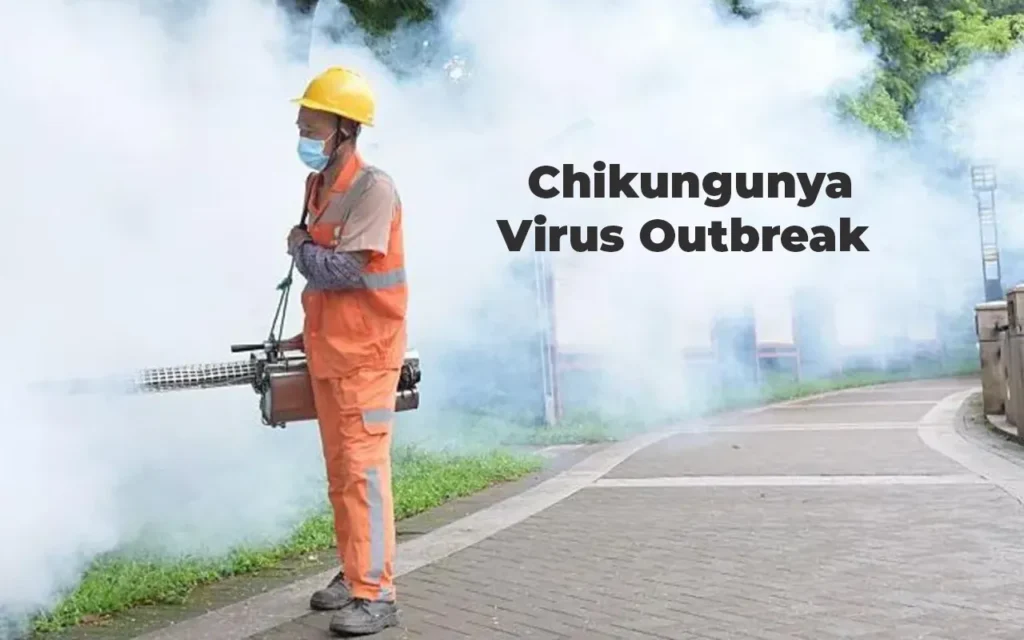A fast-growing outbreak of the chikungunya virus in southern China has infected more than 7,000 people across at least 13 cities in the country’s Guangdong province, according to health officials.

The mosquito-borne illness, which causes fever, severe joint pain, and fatigue, has spread rapidly since first appearing in Foshan in early July. Nearly 3,000 new cases were reported in just the past week.
China’s Emergency Response
Chinese health authorities are taking aggressive measures to contain the outbreak:
- Hospitalizing all confirmed patients under mosquito nets until they test negative.
- Spraying pesticides across urban and rural areas.
- Deploying drones to detect mosquito breeding grounds.
- Fining or cutting electricity to homes that refuse inspections.
- Releasing mosquito-eating fish and introducing larger “elephant mosquitoes” to prey on carriers.
Officials have described the outbreak as the largest the region has seen in years.
What Is Chikungunya?
Chikungunya is not spread person-to-person. Instead, it’s transmitted through the bite of an infected mosquito — the same type that spreads dengue and Zika.
Symptoms often include:
- Sudden high fever
- Intense joint pain (sometimes lasting months)
- Headaches
- Rash
- Fatigue
While most people recover within one to two weeks, joint pain can linger for months or even years. The illness can be more dangerous for newborns, the elderly, and people with preexisting conditions.
Why It Matters Internationally
The U.S. Centers for Disease Control and Prevention (CDC) has issued a Level 2 travel advisory for Guangdong province, warning travelers to take extra precautions.
While chikungunya is not currently spreading locally in the United States, health experts say travel-related cases are on the rise. Mosquito species capable of carrying the virus are already present in parts of the U.S., raising concerns about potential outbreaks during warmer months.
How to Protect Yourself
If you plan to travel to affected areas, the CDC recommends:
- Get vaccinated — Two vaccines are approved in the U.S. for chikungunya prevention.
- Wear long sleeves and pants in mosquito-prone areas.
- Use EPA-approved mosquito repellents.
- Avoid standing water where mosquitoes breed.
Travelers returning from China who develop fever and joint pain should seek medical attention immediately and mention their travel history.